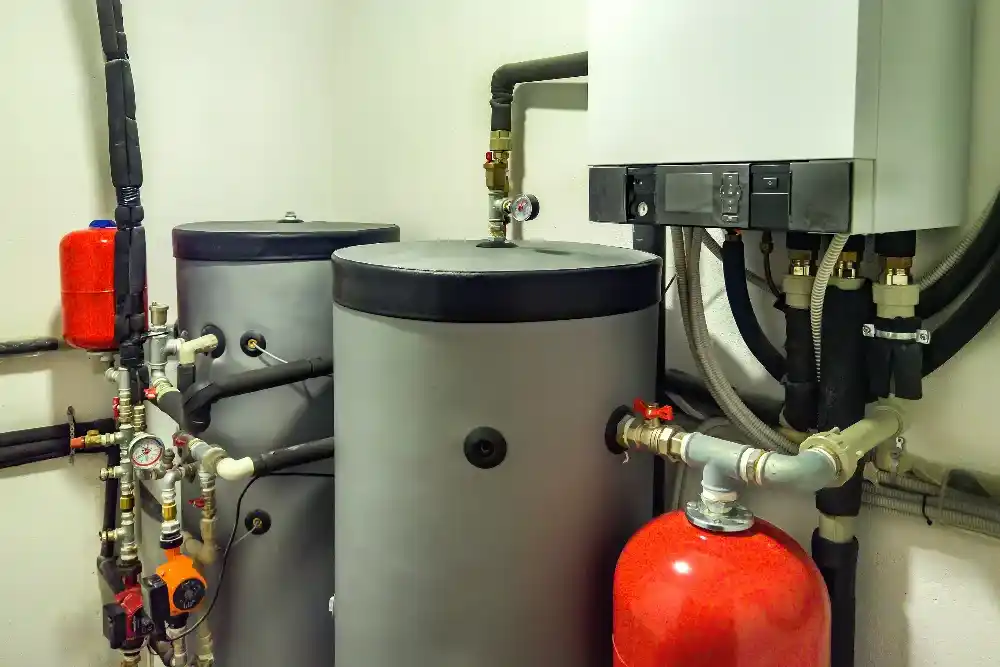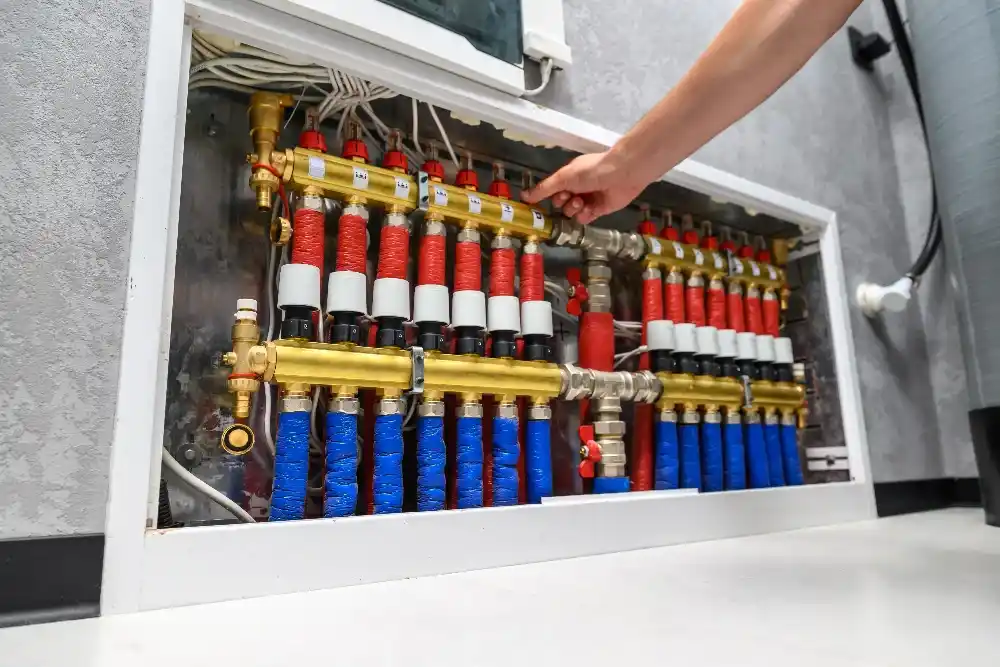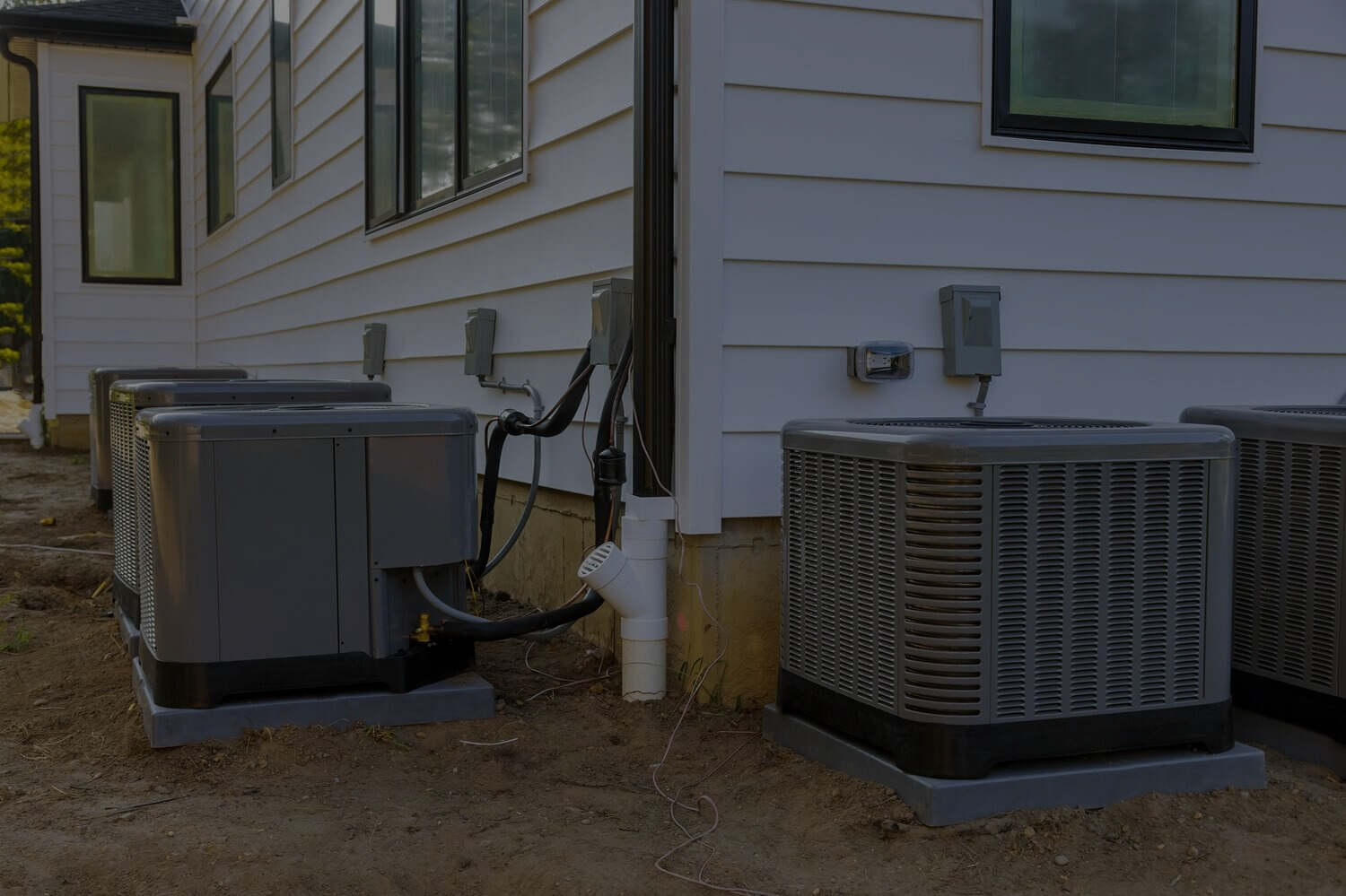
-
support
-
Blog
-
0 Comments
-
March 10, 2025
How Does a Boiler Heating System Work? A Simple Guide
Keeping warm during the cooler months is a primary consideration for all homeowners. While there are several ways to heat a home, boiler systems remain a stable and consistent option. But how does a boiler heating system work? This tutorial will explain in simple words how this sophisticated technology keeps your home warm.
What Is a Boiler Heating System?
A boiler heating system is a sort of central heating system that boils water before being used to warm your house. The water is either converted into steam or maintained hot and then pumped through pipes to radiators or underfloor heating systems.
Is a Boiler the Same as a Water Heater?
A typical query is, “Is a boiler the same as a water heater?” The short answer is no. A boiler warms water to warm your house, but a water heater only delivers hot water for your taps and showers. Boilers circulate hot water or steam in a closed system, whereas water heaters store and supply it for everyday use.
How Does a Boiler Heating System Work?
If you’ve ever asked yourself, how does a boiler heating system work, here’s a clear explanation.
The Boiler Process Explained
The process begins when your thermostat tells the boiler to start heating. The burner ignites, heating the water in the tank. Hot water or steam moves via pipes and radiators, providing heat to your rooms. Once the required temperature is attained, the system stops heating but keeps the water flowing to keep it warm.
How Long Does a Boiler Take to Heat Up Water?
You might wonder, how long does a boiler take to heat up water? It typically takes 10 to 20 minutes, depending on the kind of boiler and the amount of water used. Modern boilers are speedier and more efficient, but older units may require more time to do the same task.
Components of a Boiler System
Understanding the various components will help you better understand what is a boiler heating system.
The Boiler Unit
This is the system’s core component. It warms water with gas, oil, or electricity.
Radiators or Underfloor Heating
These are the outlets that allow heat to escape into your living space. Radiators are wall-mounted, while underfloor heating is located beneath the flooring.
Expansion Tank and Pipes
The expansion tank regulates pressure as the water boils and expands. The pipe network transports hot water or steam to its intended destination.
Thermostat and Controls
These assist to control the temperature. Smart thermostats provide remote control and scheduling, helping you save money and energy.
What Are the Three Types of Boilers?
Different dwellings have varying heating requirements. Let’s look at the primary types.
Gas Boilers
They are the most prevalent and typically operate on natural gas. If you have access to a gas supply, they are both efficient and cost-effective.
Oil Boilers
Oil boilers are ideal for remote households without gas pipes. Oil is kept in a tank and then burned to heat water.
Electric Boilers
Electric boilers are ideal for tiny homes or flats. They are silent, small, and emit no emissions, but they can be expensive to operate.
What Is the Most Efficient Heating System?
If you want to save money on your energy costs, you need to know which heating system is most cost-effective.
Factors That Affect Heating Efficiency
Insulation, thermostat settings, boiler type, and even the size of your home can all affect efficiency. Electric boilers squander less energy during travel. However, gas boilers cost less per unit of heat. Consider all of these factors while making your decision.
Does a Boiler Use a Lot of Electricity?
It depends on the type of boiler.
Energy Usage by Boiler Type
Gas Boilers
They are primarily powered by gasoline, with just a small amount of electricity used for ignition and control.
Oil Boilers
Oil boilers, like gas, consume extremely little electricity but require regular oil refilling.
Electric Boilers
These operate totally on electricity. They consume more electricity but do not lose heat through flue gases, unlike combustion boilers.

Tips for Reducing Boiler Energy Consumption
- Lower the thermostat a few degrees.
- Insulate the pipes and radiators.
- Schedule regular services.
- Upgrade to a high-efficiency model.
How Much Does It Cost to Run a Boiler?
Boiler costs vary depending on a variety of factors.
Installation Costs
Installation costs range from $3,000-$8,000, depending on style, size, and local labor rates.
Monthly Energy Costs
Gas boilers often cost less per month than electric ones. Oil is somewhere in the middle, but requires more upkeep.
Cost-Saving Tips
- Use a programmable thermostat.
- Service your boiler yearly.
- Seal all drafts in your home.
- Consider zoning your heating systems.
Boiler Maintenance and Lifespan
A well-maintained boiler may endure for decades. But how frequently should you check it?
How Often Should a Boiler Be Serviced?
Once a year is great. It maintains your system working smoothly and identifies minor faults before they become major issues.
Signs Your Boiler Needs Repairs
- Uneven heating
- Strange sounds.
- Increasing energy bills
- Frequent shutdowns.
How Long Does a Boiler Last?
Most boilers last between 10 and 15 years. With careful maintenance, some can last for 20 years or more.
Pros and Cons of Boiler Heating Systems
Boiler systems, like anything else, have highs and lows.
| Pros | Cons |
|---|---|
| Consistent, even heat | Slower heat-up times |
| Quiet operation | Higher upfront costs |
| Long lifetime | Needs yearly maintenance. |
| Less dust and allergies than forced air |
We’re Here To Help You Understand How does a Boiler Heating System Works
Still wondering how does a boiler heating system works? We hope this tutorial clarifies things. By understanding what a boiler heating system is and how long it takes to heat water, you’ll be better equipped to make smart heating choices.
South Shore Mechanical specializes in boiler installations, repairs, and maintenance. Whether you’re updating an outdated system or needing emergency repairs, we’re only a phone call away, or you can visit South Shore Mechanical. Let us keep your house warm and your system working smoothly.

